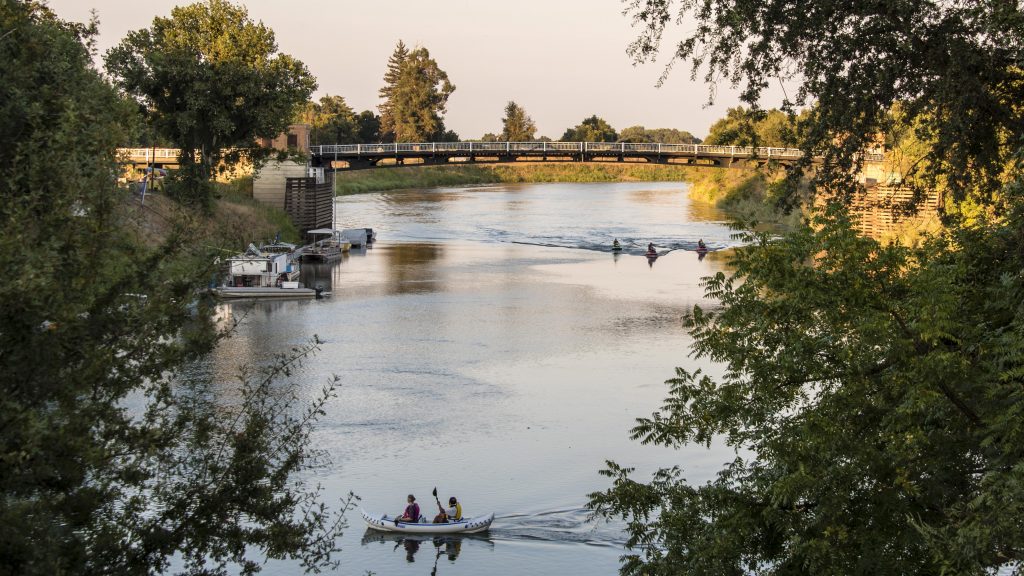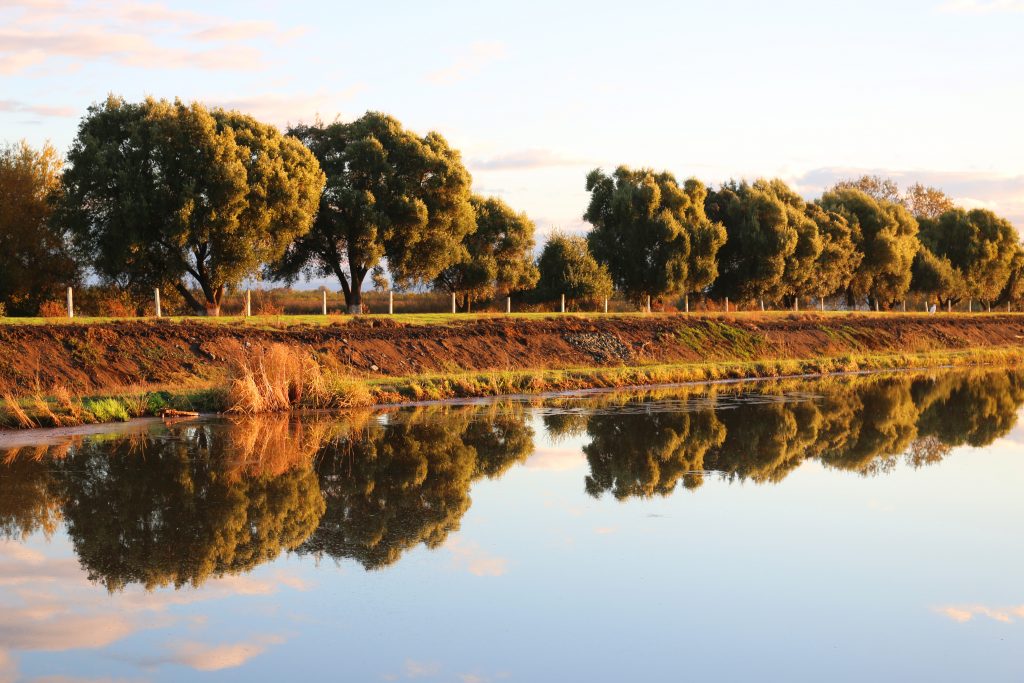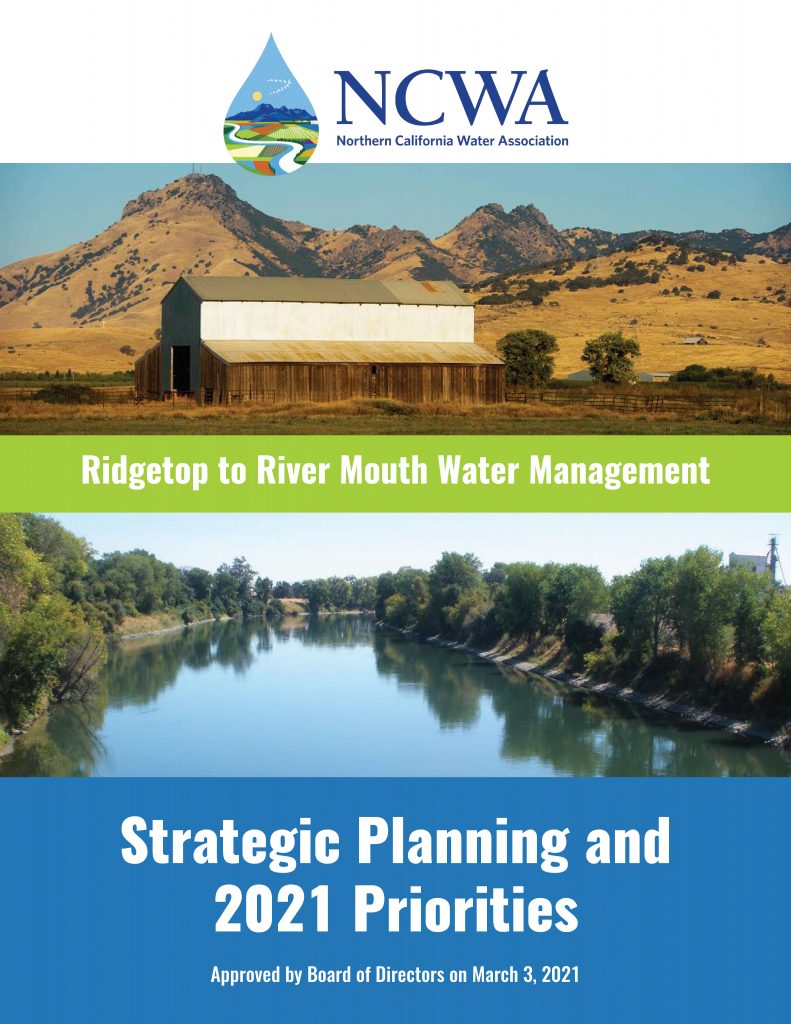
By Bryce Lundberg
On Wednesday, March 3rd, the Northern California Water Association (NCWA) Board of Directors officially adopted our 2021 Priorities. The water leaders in this region look forward to working with our many partners in 2021 to cultivate a shared vision for a vibrant way of life in the Sacramento Valley. We will continue to re-imagine our water system in the Sacramento River Basin as we also work to harmonize our water priorities with state, federal, and other regions’ priorities to advance our collective goal of ensuring greater water and climate resilience throughout California for our communities, the economy, and the environment. We encourage you to review our 2021 Priorities and share any thoughts.
 Advancing our water portfolio creates an opportunity to re-imagine our system by examining our current system and then working hard to evolve this system to reflect California’s values now and into the future. As part of this process, the Board of Directors has established the following pillars, which embrace our culture and ethos in the Sacramento River Basin and guide our priorities and actions:
Advancing our water portfolio creates an opportunity to re-imagine our system by examining our current system and then working hard to evolve this system to reflect California’s values now and into the future. As part of this process, the Board of Directors has established the following pillars, which embrace our culture and ethos in the Sacramento River Basin and guide our priorities and actions:
- Foster a regional approach among the water suppliers and local governments in the region. The NCWA leadership will work with water suppliers, local governments and landowners to aggressively and strategically implement these priorities and the NCWA vision to advance the economic, social, and environmental sustainability of the Sacramento River Basin by enhancing and preserving its water rights, supplies, and water quality for the rich mosaic of farmlands, cities and rural communities, refuges and managed wetlands, and meandering rivers that support fisheries and wildlife. This regional approach safeguards water rights, contracts and area of origin principles—for today and future generations—through sustainable water management for all beneficial uses and users of water in the Sacramento River Basin.
- Focus on population health and wellness and the importance of enhancing our world so people can live healthier and more fulfilling lives. This moment in time provides an opportunity for introspection, a time to think about our families and friends, what is essential in our lives, and how we can contribute to population health and wellness. In the Sacramento River Basin, our team is working hard to envision the role that water suppliers and local governments can serve to help people live healthier and more fulfilling lives. We have learned and increasingly believe that population health is inextricably tied to climate resiliency and ecological health: our rivers, soils, air, trees, watersheds and floodplains—and the way they function together.
- Fix not fight. Sacramento River Basin leaders are committed to fixing problems rather than fighting over them. In this spirit, we believe the collaborative approach described below is central to water resources management in the region and is highly preferred to acrimony and litigation. As an example, an adversarial, regulatory approach to updating the Bay-Delta Water Quality Control Plan will only delay and misdirect valuable resources away from the collaborative and innovative water management described in this roadmap. Instead, we are advancing Voluntary Agreements: The New Way Forward as a catalyst for all the creative and innovative actions described in this document, including priority habitat and flow actions that will advance species recovery and continue the momentum and collaboration necessary to successfully implement a resilience portfolio.
- Advance multi-benefit water management approaches that meet multiple needs at once, which include cities, farms, fish, birds, other wildlife, recreation, and hydropower. Multi-benefit water management is the hallmark of the Sacramento River Basin. See Managing Water in the Sacramento Valley for Multiple Benefits.
- Support nature-based solutions that use our natural and working lands to sustain our economy, support our unique biodiversity and contribute to the global food supply. These working landscapes, which provide essential benefits for our economy, health and quality of life—including clean water, nutritious food, outdoor recreation—and contribute to the state’s climate goals and protecting our communities from wildfire, floods, droughts and extreme heat. These programs will “advance multi-benefit, voluntary and cooperative approaches that protect and restore biodiversity while stewarding natural and working lands, building climate resilience, and supporting economic sustainability” as called for by the Governor.

- Prepare for dry years. Every element of this portfolio is designed to provide improved resilience during dry years, yet there are other specific measures that we will take in 2021 to better prepare for dry years. NCWA has a Dry Year Task Force that convenes in dry years to improve communication, help implement the water rights priority system and ensure water for all beneficial uses. The Task Force works with the State Water Board to implement the water rights system and to better prepare for the next dry period and water resources managers are coordinating with state and federal agencies to prepare for and work together in these drier years.
- Prepare for a changing climate. Recent studies have shown that California’s winters are likely to be warmer and the hydrology is likely to be more concentrated in fewer months of runoff. Slowing water down as it moves through the Sacramento Valley, more effectively utilizing floodplains, groundwater and surface storage reservoirs will help adapt working landscapes and ecosystems to climate variability.
- A new culture of partnerships building on the model for success that has emerged over the past decade, with state and federal agencies encouraging, facilitating and supporting regional and local agencies with the capability, expertise and local knowledge to design and implement the essential elements of a water portfolio. Every policy priority described here would benefit from an approach where state and federal agencies support local agencies or joint powers authorities.
- Build trust and credibility across the different communities engaged in water through honest discourse and mutual respect, while working with various technical experts to develop and make decisions based on credible information and data.
- We are an inclusive organization that values the perspectives, contributions, and experiences of all Californians. These values are reflected in our work. We have an active water leaders’ program where we seek diverse participation from leaders with a both a passion and interest in Northern California water issues and making the Sacramento River Basin a better place. We will continue to find solutions to ensure safe, reliable and affordable water for all communities through our Drinking Water Solutions Network. As we move forward, we will continue to listen to, engage with, and learn from our fellow Californians.
- Our strategic goal is to inspire thoughtful public discourse and collaboration that points positive and brings people together—working towards a re-imagined water system that will assure reliable, affordable and high-quality water supplies will be available to serve multiple benefits in the Sacramento River Basin now and for future generations.
- Although our priorities are set in the Sacramento River Basin where we devote our time and energy, these ideas hold promise to help address statewide needs and we will integrate our priorities with other regions as part of a statewide solution.
For more information or to share any thoughts, please contact us at info@norcalwater.org.
Click below to see the full document:





Curious…. You are saying that “a regional approach among water suppliers and local governments in the region” is how water in the Sacramento area, let’s say, is being managed and yet I see that you have employed the services of America Water Works to manage the water resources in the 95842 area. Why is a company that services much of the United States and Canada involved at all with the water concerns of Sacramento if your position advocates for a “regional” approach. …so just how large is your definition of a region?